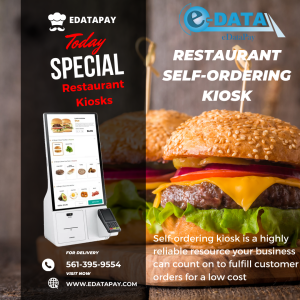Adoption of AI in the Automotive Industry: Is It Worth the Effort?
AI is a hot topic for automakers, but are the challenges too numerous for improving the driver experience and car safety with ML and AI?
Updated on December 23, 2021
10 mins read
In this article, we will discuss:
- How AI is currently challenging the automotive industry
- Key challenges of adopting automotive AI in next-generation cars
- How car brands are leveraging AI in automotive manufacturing
- IT vendors and startups that help OEMs overcome AI challenges
Artificial intelligence in vehicles: How AI is currently challenging the automotive industry
The automotive market’s explosive interest in artificial intelligence development is being proven by the investments we see in innovative technology. Tractica estimates that the market for automotive hardware, software, and services, will climb to almost $27 billion by 2025.
The global market of artificial intelligence automotive systems

Source: Deloitte
Everyone’s hot about autonomous vehicles and driverless future, and Level 3 autonomy is actually already here. However, even the most optimistic forecasts acknowledge that mass production of next-generation cars is still a decade away, at least. If that’s true, where’s all the money going? The implementation of artificial intelligence in the automotive industry is not solely limited to self-driving capabilities. The majority of solutions of artificial intelligence in car manufacturing are built around advanced driver-assistance systems (ADAS), the combination of edge computing and IoT devices, voice recognition, and more. And, of course, the common fields like car maintenance, supply chain, and marketing are also involved.
Is it possible for new, modern vehicles to not incorporate AI, continue to be classic means of transportation, and still remain competitive? As we see from the investment statistics and the changing landscape of automotive competitors, it doesn’t seem so. The current demand from the millennial and Z generation market is the exceptional user experience: fast, flawless, and on hand. This causes us to stop thinking about a car as merely a means of transportation and shift to the concept of a computer on wheels. Traditional automakers have to adapt or lose out. It doesn’t mean they necessarily have to build an AV, but ensuring an excellent user experience is a must and without ML and AI algorithms, it’s impossible.
Not only are AI technologies critical for enabling our autonomous vehicles, but they are playing an increasing role in transforming our customer and employee experiences.
Jeff Lemmer, VP and CIO, Ford Motor Company
While the importance of adopting artificial intelligence in the automobile industry has been proven, its implementation on the enterprise level is quite challenging and is a far slower process than expected. Capgemini’s report of 2018 states the share of automotive companies deploying AI, at scale, has only grown 3% since 2017.
AI Implementation at automotive organizations

Source: Capgemini
To be honest, there are multiple AI challenges including the current legacy systems in use and a lack of training on data and skills. You can’t live without AI but struggle to adopt it – this is the modern way of the automotive industry. At Intellias, we have both OEMs and Tier 1 companies among our customers, so we understand these concerns. However, acknowledging the problem is the first step in solving it. Let’s try to sort through the challenges of automotive AI adoption and explore possible reasons why we have them.
Challenges of adopting AI in next-generation smart cars
Starting from ADAS and other IoT-empowered systems to more advanced AI systems for self-driving capabilities, the creation of AI algorithms involves a great number of professionals, from software engineers to governmental bodies. Some challenges they face are addressable and need only time to overcome, but some remain without workable solutions.
Starting from inside the car, key issues are formed around sensors, computing hardware, and software for driving assistance and enhanced safety. For example, the sensors currently used in smart vehicles are not enough to ensure a high level of safety. They have to be improved to properly function at high speed or limited visibility. At the same time, the price of advanced lidar is currently too much to be economically feasible. The computing power of ECUs that need to process massive input autonomous vehicle data, and at the same time compute complex AI algorithms (such as CNN in real-time), is another matter. How can it align with the increasing trend of electric drivetrains and low energy consumption?
Software development is a challenge itself since the creation, training, and validation of AI algorithms bumps up against many technical and regulation obstacles. There are open issues around AI in cars that engineers are struggling to solve. Here are a few of them:
- obscurity of the ML algorithms
- difficulty to tackle errors
- impossibility to apply Agile techniques to AI algorithms’ development
- long and numerous rounds of testing
- a great amount of data and expertise required to build and leverage simulators
- unpredictable time and cost to market
AI algorithms operate like a black box – it’s difficult to determine why certain decisions were made. Therefore, validating functionality is statistically possible via the numerous test cases only. Experienced AI software vendors have their ways of ensuring efficiency and providing the best possible solutions for these challenges.

If we step outside software development, artificial intelligence in automotive manufacturing meets other issues. There are no clear regulations on data collection and governing the new methods of autonomous transportation. And the few existing regulations are seriously affecting automotive artificial intelligence development. Take GDPR, for instance. It poses strict obligations on companies that collect and process personal data, which subsequently influences the creation of ML algorithms. Even more, GDPR explicitly addresses “automated individual decision-making” and profiling, which is actually an AI’s decision made without any human intervention. There are ways to make AI compliant with GDPR, but it requires certain expertise that few automotive software providers possess.
Another concern automakers are currently facing is gaining the user’s trust. While we are somewhat ready for a car to assist us on the road, the same is not true for self-driving vehicles. The willingness of people to trust AI in cars is increasing at a very slow rate: the numbers were unchanged through 2018 and 2019, with only an 8% rise from 2017. Here are how things look now: modern users want a car to be functional, comfortable, safe, provide additional infotainment functionality, but remain subordinate (not dominate) while on the road. Luckily, OEMs in partnership with hardware and software vendors have managed to meet this need.
How car brands leverage AI in automotive manufacturing to improve user experience
As we’ve mentioned, car data monetization use cases of AI in car manufacturing are not solely limited to self driving cars artificial intelligence usage. The possibility to not only improve user experience but also employee experience, work efficiency and safety are the key factors that nudge businesses in trying this advanced technology in the following sectors:
Driver assistance and safety
Automakers have collaborated with tech companies to introduce many exciting and cool features for users in recent years: automatic emergency braking, lane crossing alerts, driver and passenger monitoring, blind spot elimination, side collision warning, and even optional self-driving capabilities.
Brand-new cars are now helping you deal with hazardous road conditions, park, steer, avoid accidents, and even entertain children in the backseat. Voice-enabled virtual assistants, driven by NLP and ML techniques, are becoming more advanced and are fulfilling more actions without human intervention. For example, the BMW 3 Series includes an intelligent personal assistant, which aims to improve the safety and comfort of the driver. A simple, “I’m cold,” spoken out loud will heat your seat and adjust the car’s temperature. Tell the smart assistant how tired you are, and it will trigger the vitalization program – making the interior light brighter, playing music, lowering the temperature, etc. These fascinating features are just a few of many that are currently tempting new automotive businesses.
AVs and connected vehicles
Autonomous vehicles are rare on the roads. However, the advanced level of assistance (with limited use cases of autonomy) is already being enjoyed by drivers. The 2019 Mercedes-Benz A-Class can slow the car when taking corners, circling roundabouts, and coming up on toll booths, detect speed limit signs and automatically adjust to the limits. Nissan ProPilot Assist is another example of semi-autonomous capabilities, taking the job away from the driver while in stop-and-go traffic.
AI is also an essential technology for connected vehicles, as well as the multitude of apps and systems emerging from connectivity. A plethora of automotive companion apps nicely illustrates connectivity in action: Skoda Connect App, Mercedes-Benz apps, MyCitroen App – they not only help drivers, but also manufacturers. In addition, AI-empowered connectivity is a source of invaluable data that affects decision-making in the many fields of the automotive industry. For instance, Formula One cars produce around 100 gigabytes of data through 300 sensors. Engineers then review all data in real-time to make crucial decisions about mission control, tire change, etc.
Data is the foundation of making cars go faster
Paul Brimacombe, head of enterprise architecture, McLaren Technology Group
AI in car manufacturing
The use of artificial intelligence in vehicles, along with its applications, helps OEMs cut manufacturing costs while ensuring safer and more innovative vehicle production. Computer Vision, for instance, is a priceless tech for identifying anomalies: Audi is testing artificial intelligence to identify tiny cracks in sheet metal, General Motors uses ML algorithms for product prototyping, and Continental leverages vehicle test data for modeling and simulation.
Also, artificial intelligence in cars systems is a perfect tool for more than making machines smarter, it also predicts their failures and malfunctions. Considering the cost of delays from automotive plants, risk management combined with AI algorithms is worth the money.

Supply chain
The complexity of automotive supply chains equals the cost of manufacturing. Just imagine, an average vehicle has around 30,000 separate parts, and all these parts are often gathered from different vendors around the world. A multitude of intermediaries and many variables, intertwined with unpredicted external factors, and the delay of one stage causes a ripple effect. With the help of AI, OEMs and their partners can automate processes like equipment, tools and labor requests, predict demand, improve inventory, logistics, tracking, etc.
Outside these areas, OEMs often use AI algorithms in sales and marketing. They can be used, for example, to predict the demand and sales volumes of different car models depending on the country and time of year. Also, artificial intelligence in the automobile industry can help tune pricing, build specific configuration, offer personalized marketing, and much more. Because of this, companies are not only leveraging their traditional channels, but also the data gathered through connected vehicles, wearables and apps.
IT vendors and startups that help OEMs overcome the AI challenges
The adoption of artificial intelligence in the automotive industry has forged many partnerships and acquisitions between traditional automakers, tech giants, niche startups and service providers. Companies like ON Semiconductor, for instance, are providing OEMs with sophisticated image sensors, radars, lidars and ultrasonic solutions. BMW, Volkswagen and Daimler are negotiating on joint R&D for self-driving vehicles. Besides this, every party has its own tech partnership: BMW with Mobileye, Daimler with Bosch, VW with Aurora and Ford. This is the way to lower costs while staying on the edge of innovation.
Many disruptive startups emerge to cover the demand from automotive companies, developing chipsets, hardware, and software for autonomous systems, blockchain solutions, sensor systems, data management solutions, etc. There is a vast need for professional and reliable tech partners in the industry, and when the perfect match is found, the collaboration often remains for years.
Summing it up
OEMs believe the efforts and expenses involved in adopting AI are worth it, and they are ready to take the financial risks. Even though challenges still exist, like the complexity of software development or various compliances and regulations, different fields within the automotive industry are already leveraging this tech and seeing increased efficiency and optimization of processes. To cover the market’s need for an all-encompassing in-vehicle user experience with enhanced safety, automakers must abandon traditional ways and focus on the importance of software and data instead. As the market of smart automotive tech is rising and the talent pool is increasing, OEMs should soon expect a drop in prices and fewer challenges with specific hardware and software. Until then, partnerships with experienced Tier 1 and Tier 2 companies are the differentiators in your success.
Intellias is one of the trusted Tier 2 companies that have been in the automotive software domain for around 15 years. We pride ourselves in applying expertise in AI and ML, IoT and embedded solutions, cloud computing, and cybersecurity to accurately cater to the software needs of our partners around the globe. Whether you need solutions for ADAS, HMI, navigation systems, or in-car IoT devices, don’t hesitate to reach out to our experts, and let’s make your adoption of AI in automotive manufacturing as seamless as possible.








